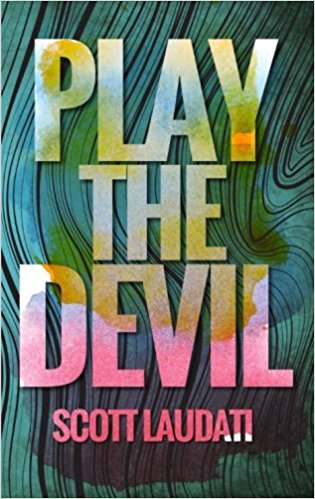New novel Play the Devil a lacklustre coming-of-age story
By Emily Macphail, May 26, 2017—
Scott Laudati’s debut novel, Play the Devil, is pegged as a coming-of-age tale. While most stories of this kind tend to involve some transformation or epiphany experienced by the main character, Laudati’s protagonist, Londi, is as stagnant as the algae-infested pool water that he moans about cleaning over the course of far too many pages. 
The book begins as Londi quits college, burnt-out and disillusioned, hoping to write the “next great American novel.” With growing concern around student mental health, Londi’s descriptions of insomnia, substance use and his lament — “I felt dead. Like my parents were dead. Like all of the drooling dogs on earth were dead” — suggest some failing of his institution. A school administrator tells him point-blank that she doesn’t care why he’s quitting, reflecting Londi’s perception of society’s indifference to his situation.
At 24, Londi announces to his parents that he’s dropping out, but comes off as laughably childish. He texts his mother, “I quit. I’m a victim of adolescence.” Given what returning to his parents’ house involves — camping out in the basement, drinking the remnants of an old bottle of cough syrup and finally being evicted in the aftermath of a drunken one-night stand — it’s his parents who are the true victims of Londi’s adolescence.
Post-eviction, Londi lives with his childhood friend, Frankie Gunnz, the only character in the book with any semblance of work ethic. Gunnz works as a pool boy and, in a cheap, ironic twist, the jobless protagonist becomes his partner. It’s at this point that the novel rinds to a halt as the remaining pages only cover the course of a single day in excruciating detail.
Laudati is descriptive, thriving on minutiae and metaphor. I’m sure that this book will appeal to some – particularly if they’re feeling as disillusioned as the main character. However, I found Play The Devil unenjoyable. Londi’s arrogance, laziness and thorough disregard for others had me disliking him from the start. I’m hoping lines like “I knew then that my youth was gone. Bruce [Springsteen] just couldn’t be enjoyed unless you were a man on the grind,” are intentional sarcasm on Laudati’s part, rather than a failed attempt at his own great American novel, written about a character who had aimed to write that novel himself.
There are many books you can dive into this summer. Laudati’s is unfulfilling. Hold out for his next attempt or find something else altogether to occupy your time.
